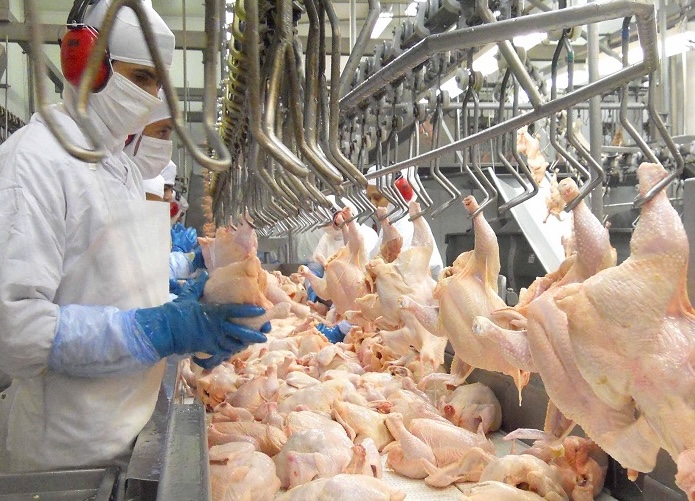China has suspended imports of poultry products from Argentina effective August 20, only five months after lifting a two-year ban on the South American supplier.
The suspension follows Argentina’s decision to temporarily halt poultry exports after detecting highly pathogenic avian influenza (HPAI) on a commercial farm in Buenos Aires province.
Argentina’s national animal health authority, Senasa, confirmed the case recently and stated that exports would remain paused for at least 28 days while slaughter, cleaning, and disinfection take place. Shipments can only resume if no further outbreaks occur in commercial flocks.
China’s General Administration of Customs published the suspension notice on its website but did not provide further details on the duration of the measure. Customs officials have not yet responded to requests for clarification.
Trade implications
Argentina mainly supplies poultry products such as chicken feet, wings, and bone-in cuts to China, a market that relies heavily on imports for variety in its protein supply chain.
Although China is the world’s largest poultry producer, imports remain significant for specific categories such as chicken feet, which are widely consumed locally but less in demand in Western markets.
Analysts believe the immediate market impact will be modest.
“This decision may help support the prices of some poultry products as China has restricted imports from some major suppliers,” said Pan Chenjun, Senior Animal Protein Analyst at Rabobank.
“However, its overall impact is likely limited due to China’s current surplus of poultry meat and the industry’s ongoing financial struggles.”
Broader restrictions on global suppliers
The latest suspension comes amid broader restrictions targeting other exporters. Beijing has already halted poultry and related products from Brazil, its largest supplier, since May, citing avian influenza outbreaks.
Earlier this month, imports from Spain were also suspended on similar grounds.
Between January and July 2025, China imported 226,013 tons of poultry meat, down 2% year-on-year, according to customs data.
While the slowdown reflects both biosecurity concerns and weak domestic demand, continued restrictions on major exporters could gradually tighten supply in specific product categories.
Trade diversifications
Industry observers note that if outbreaks persist in multiple regions, China may face upward pressure on prices for high-demand poultry cuts despite its current surplus.
Trade diversification is expected to gain momentum, with exporters in countries such as the US, Thailand, and Russia potentially benefiting from temporary supply gaps. However, given the volatility of avian influenza, China’s import policies are likely to remain cautious and reactive in the near term.

